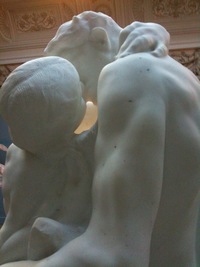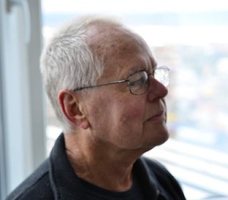

The next how and what I'm exploring is accepting.
A tourist became lost in Ireland and went into a tavern to ask directions. He opened a map and showed the publican where he started and where he wanted to go. After considerable thought, the publican replied “Well, I wouldn’t be starting from here”.
Probably the best known quote from Lao Tzu’s Tao te Ching is #64 “A journey of a thousand li begins with the first step”. There are other translations - “The journey of a thousand li begins with the ground beneath your feet”, “Reality begins where you are”, “This is it”, and my very favourite “Knowing nothing needs to be done is the place from where we begin”.
Erickson spoke of a man in a psychiatric hospital who would only say “I shouldn’t be here”. He replied and asked the staff to also reply with “But you are here!”. The man eventually heard the reply and said “Oh my goodness! What do I need to do to get out of here?” He had to get “here” before there was any possibility of getting out of “here”.
If our car gets bogged, the temptation is to spin the wheels which of course will only make things worse. The first step is to realise that the car is bogged so that then, and only then we can begin to explore ways out of the bog.
When I went into my waiting room to meet the first client one Thursday morning I was hit by the stench of stale cigarette smoke. The ma looked like he needed a good wash and I thought “Is this how I want to spend my life?” I was polite, hopefully hiding my disgust, and he wanted help to stop smoking. As we talked, he spoke of his fascination with philosophy, and Martin Heidegger in particular, and I slowly began to appreciate this man as more than his stench. As I accepted him, the session went well, and he was happy with the outcome. The main impediment was my slowness to accept him, and when this was put aside, all was well.
Some possible hows:
Notice and own any judgements you make
Put these judgements aside for the moment
Imagine that you are the other person looking out through their eyes, with their history of life experiences
